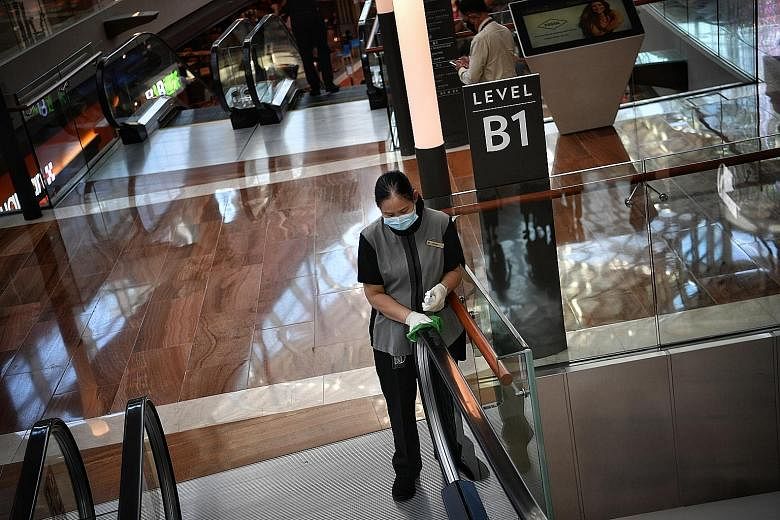An overwhelming majority of around 95 per cent of Singapore residents are keen on laws and enforcement when it comes to public hygiene in places such as childcare centres, eateries and malls.
The third edition of the Public Cleanliness Satisfaction Survey, conducted by the Singapore Management University (SMU), polled 1,716 Singaporeans and permanent residents aged 21 and above.
The results were released yesterday.
The survey, based on responses collected from last December to April, before the start of the circuit breaker, asked residents about their perceptions of public cleanliness and hygiene in Singapore.
While maintaining public cleanliness involves removing dirt or litter from public spaces, maintaining public hygiene goes a notch higher and involves disinfecting public spaces to kill germs and minimise the spread of infectious diseases.
The majority of the people polled were concerned about the level of hygiene in public places.
About 97 per cent of them agreed that there should be laws to require stricter hygiene standards for shared spaces such as childcare centres, eldercare facilities, schools, food establishments and shopping centres.
Respondents also wanted building operators to be made responsible for the public hygiene of their buildings.
When it came to public cleanliness, about 93 per cent of respondents indicated that they were satisfied with the cleanliness of public spaces they recently visited.
This was a 9 per cent hike from 2018.
Both Professor Paulin Tay Straughan, SMU's dean of students and professor of sociology (practice), and Dr Mathew Mathews, senior research fellow at the Institute of Policy Studies at the National University of Singapore, who led the survey together, agreed that the ramping up of cleaning efforts due to the Covid-19 pandemic may have led to the increase in satisfaction levels.
Prof Straughan said: "We see all the negative effects of Covid-19 but it has also opened opportunities for us to do things that we might not normally have done with urgency. Careful attention to public hygiene is something that is appropriate at this time.
"I do think if we take advantage of the opportunities that we have now, we might have a higher chance of changing behaviour in a sustainable way."
Despite the overall satisfaction, 23 per cent of respondents said that the thoroughness of the cleaning in hawker centres and coffee shops was still insufficient.
When it came to returning trays in food and beverage establishments, 36 per cent of respondents said they were unsure if trays should be returned.
About the same number of respondents expected cleaners to return the trays instead.
The results of the survey threw light on Singapore's reliance on cleaning services to ensure the cleanliness of surroundings.
Indeed, 87 per cent of respondents acknowledged that Singapore is clean only because of the efficiency of its cleaning services.
Less than half of the respondents indicated that they would volunteer in a neighbourhood group that championed cleanliness matters.
Financial technology executive Sarthak Shreya, 26, who lives near the Civic District, noted that people have been mindful in public spaces in recent months.
"I notice people are careful about their actions in public because of Covid-19. They want to make sure they and those around them are not at risk.
"If we maintain the same level of hygiene even after this pandemic, it can help the community build resilience against future threats," he said.
The study went on to suggest some ways the public could improve public cleanliness and hygiene.
For example, it suggested that cleaners in food and beverage outlets could put in less active effort to clear trays, which would send a strong message that it is the patrons' duty to return trays.
It also suggested that the Government could consider how building operators can be accountable for and transparent about public hygiene matters.



